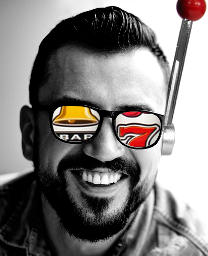Bets hedged on gamblers' heads to break addictive grip
 Australian scientists will look inside the brain for physical evidence of gambling addiction, with the launch of an important research project.
Australian scientists will look inside the brain for physical evidence of gambling addiction, with the launch of an important research project.
Australia has a gambling problem, spending more on gambling per person than any other nation.
At least one million people are defined as problem gamblers, and this group is responsible for 40 per cent of the money spent on gambling in the country.
Now, researchers will use advanced techniques to try and find what changes someone from enjoying an occasional flutter to full-blown gambling addiction.
In the study, scientists from Monash University will for the first time use a combination of MRI scans, psychological tests and questionnaires to pinpoint the differences between the brains of regular gamblers against a control group.
Monash Clinic and Imaging Neuroscience (MCIN) group Director Professor Murat Yücel said the study comes at a critical time.
“Gambling is considered an acceptable leisure activity, and for most people it is,” Professor Yücel said.
“But it’s hard to ignore these alarming statistics. An increasing number of people are unable to control their gambling. Instead of being a bit of harmless fun, it becomes a major problem that people struggle to control, impacting every aspect of a person’s life.
“We urgently need more research to understand why some people develop an addiction and some don’t. With this information we can develop targeted support for each individual.”
Gambling problems develop when certain areas in the brain known as ‘reward circuits’ begin to malfunction, but
Dr Valentina Lorenzetti, from the MCIN, says data on problem gambling is well behind that on other forms of addiction.
“At the moment we’re ‘borrowing’ information on what happens to the brain with other forms of addiction and applying this to gambling research. But this is a unique disorder, which needs dedicated research. This study will fill that gap,” Dr Lorenzetti said.
The tests, which include personality profiling, responsiveness to stimuli and behavioural patterns, will build a detailed picture of what happens in habitual gamblers’ brains.
“Problem gambling is very complex, there are many elements at play. For example, two people could be sitting side by side at the pokies for hours on end doing exactly the same thing for very different reasons,” Professor Yücel said.
“The challenge is to get to know these reasons by building a very detailed understanding of the psychological and neurobiological processes that drive or maintain gambling for different individuals. In doing so we can develop individually tailored treatments.”
Researchers are looking for volunteers in the Melbourne region who regularly gamble to take part in the study. Participants will be reimbursed for their time, expenses and travel costs.
For more information contact the study researchers in confidence by emailing: med-mcin-ocdpg(at)monash.edu








 Print
Print